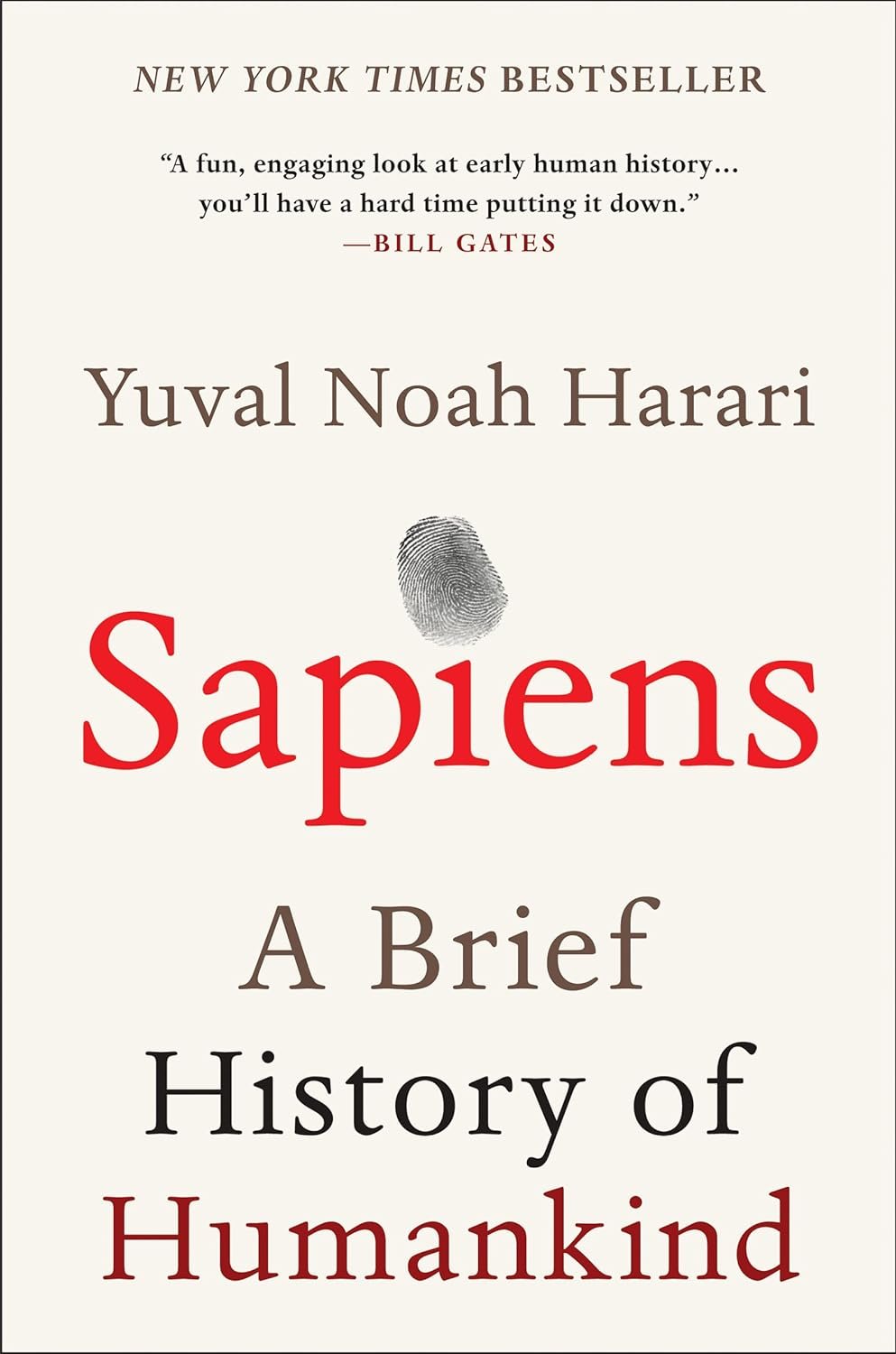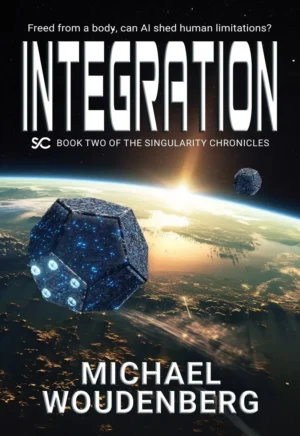Sapiens: A Brief History of Humankind by Yuval Noah Harari
Humans are weird. Like really weird. We have so many odd cultural traditions and idiosyncrasies but we work, we advance, we grow. In concert with The Secret of Our Success by Joseph Henrich, Sapiens is a must-read to understand how we are wired together individually and socially. It’s a fantastic and fun read that provides a ton of useful insights. In fact, it’s a book I actually quote in my Science Fiction novel Integration: Book Two of The Singularity Chronicles as the sentient AI struggles to understand the nuances of what it means to be human.
You can also find this idea broken down into thought-provoking essays from the popular Substack Polymathic Being, also written by Michael Woudenberg
Product Details
In Sapiens: A Brief History of Humankind, Yuval Noah Harari takes readers on a sweeping journey through the history of the human species. From the dawn of Homo sapiens in prehistoric Africa to the modern age of technology and globalism, Harari examines how humans became the dominant species on Earth. He explains key revolutions—Cognitive, Agricultural, and Scientific—that shaped the course of human history and explores the impact of culture, religion, and technology on our development. Harari also speculates on the future of humanity, questioning the effects of genetic engineering, artificial intelligence, and biotechnology on the future evolution of humans.
Key Takeaways:
- The Cognitive Revolution: The development of complex language allowed humans to collaborate in large groups, setting the stage for societal development.
- Agricultural Revolution: The shift from hunting and gathering to farming created the conditions for the rise of civilizations, but also introduced social hierarchies and inequalities.
- Scientific Revolution: The emergence of the scientific method led to unprecedented technological advancements, altering the course of human history and shaping the modern world.
- The Future of Humanity: Harari warns that advances in biotechnology and AI may radically alter human evolution, raising ethical and philosophical questions about what it means to be human.
Why It Matters: Sapiens is essential reading for anyone interested in history, culture, and technology, providing a multidisciplinary approach to understanding the human condition. The book ties into Polymathic Disciplines’ focus on innovation, culture, and human potential by examining how past innovations have shaped our present and how current trends will shape the future.
Actionable Insights:
- Use historical insights to inform strategic thinking, ensuring that you anticipate future trends and challenges.
- Explore the ethical implications of technological innovations, preparing yourself and your business for the potential shifts AI and biotechnology will bring.
- Apply Harari’s big-picture thinking to your personal development, focusing on how cultural and technological shifts impact personal and professional goals.
- You can also find this idea broken down into thought-provoking essays from the popular Substack Polymathic Being, also written by Michael Woudenberg






Reviews